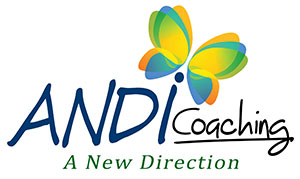To Certify Or Not To Certify - That Is The Question...
Quite often I hear people who want to become professional life coaches ask questions regarding formal coach training and certification. Should I go for formal training and get my certification? What are the benefits of becoming certified? Certification is only a piece of paper so how does that prove my qualifications? Why should it make a difference to my client if I'm certified or not? I have so much life experience so why can't I just call myself a life coach?
Setting An Example
Professionally trained life coaches understand the value of investing in and properly representing oneself and so it might be the lack of that formal coach training that is part of the reason behind such questions being asked. Life coaches help their clients be the best they can be so it can be said that if someone wants to be a professional life coach, then they should be an example for others, most importantly an example for those they intend to coach. That being said, here is a question potential clients might ask...
What differentiates between a professional certified life coach and a self-proclaimed life coach?
Life Experience Versus Formal Training & Certification
Life experience is important and can actually play a large role in the coach/client relationship. A certain understanding and connection between the life coach and client can exist at a higher level. A wonderful bond can be formed when clients feel that their life coach can relate to them. However, life experience alone does not qualify someone to be a life coach. It might be said that proclaiming oneself as a life coach is the equivalent of providing oneself as a reference.
During the formal coach training period a proven set of tools, strategies, techniques and methods are taught. There are conduct standards as well as a code of ethics by which professional life coaches need to uphold, as do the qualified coaching schools. This leads to wondering who or what sets the standards for self-proclaimed life coaches.
Without formal training self-proclaimed life coaches have only life experience to offer, and they rely on that experience to advise others what to do based on what worked for them, their opinion, their view, and their perspective - which may or may not be in alignment with what is best for the client. What that advice does is influence the client to make decisions based on what was good for someone else, not what is necessarily good for themselves. Making decisions based solely on the advice of others tends to be dis-empowering to the client and can lead them into a dependent relationship. Clients may fall into the "I won't make any decision without consulting with my life coach first" trap. It's one thing and very common for past clients to stay in touch with their life coaches to share their achievements, to be held accountable, and to get some support, encouragement and empowerment. It's another thing, though, for clients to become dependent on their life coaches.
Professionally trained life coaches do not advise their clients what to do, nor do they influence them to go in one direction or another. Becoming certified involves training the life coaches to use a combination of their knowledge, skills, techniques and tools which help clients gain awareness and clarity so that they can come to their own conclusions and make their own decisions. They are trained to help clients set precise goals that are aligned with their intentions. They are trained to help clients connect to their values so that the steps they take are in harmony with what they want to achieve. Professionally trained life coaches use their skills not to give the client the answers, but instead to help them discover the answers for themselves. It is through self-discovery where clients are empowered the most and learn the best so that they can move forward and make positive lasting life changes.
Education and training strengthens a life coach's skills and knowledge. It provides a hands-on approach to apply the learned skills and techniques to real live clients. Putting into practice all that is learned during the formal training period, witnessing firsthand how the coaching process truly works and seeing how the clients evolve as a result of the process allows the life coach in training to gain self-confidence as a life coach, enhancing the life coach's performance and ultimately better serving the client.
In Conclusion
The decision to become certified is a purely personal one, as is the client's decision to choose between a professional certified life coach and self-proclaimed life coach.
I am very proud of the many hardworking hours I invested in the formal coach training I received. I take great pride in what my certification stands for - my qualifications, my skills, my knowledge, my professionalism and my ethics. It represents the fact that I successfully completed and fulfilled my coach training and internship. It represents the fact that I properly mastered the tools and methods necessary to bring clients their desired results. It represents the fact that I rightfully earned my title as a Professional Master Certified Life Coach.

